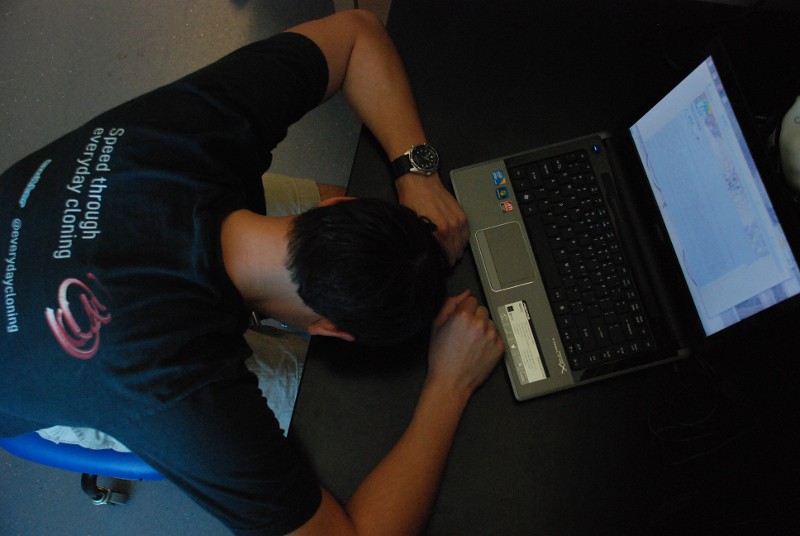Team:UC Davis/Attributions
From 2011.igem.org
Start a Family
Got a favorite BioBrick? Check our our process for expanding basic parts into part families.Criteria
View our judging criteria for iGEM 2011 here.
Attributions: What Did We Do?
The short answer? Everything.Wet Work
 We performed all of the wetlab work on our project including everything from minipreps to PCRs to gel extraction. We also did the very wet work of cleaning our own glassware!
We performed all of the wetlab work on our project including everything from minipreps to PCRs to gel extraction. We also did the very wet work of cleaning our own glassware!
All the experiments that we ran were performed by one of the four team members on this year's team. That's not to say that we didn't get help, just that the help was usually knowledgeable information which guided us in the right direction rather than simply doing the procedure for us.
We did everything to sustain a research group including the boring and tedious tasks of reloading tips into boxes and making gels and plates.
We did it all!
Open-Source Mindedness
Since we are a relatively new team, acquiring funding hasn't been the easiest task especially in the current economic climate. Even with less than unlimited funding, we were still able to produce quality animations, analyze data efficiently, and tweak images using nothing but free, open-source software. With much of synthetic biology paralleling the open-source movement, we wanted to show that an entire project could be done using nothing but open-source and freeware applications.GIMP: An Alternative to Photoshop
 We used Gimp (GNU Image Manipulation Program) for all of our image editing. This program has a majority of the same features as Adobe Photoshop while being free and lightweight. GIMP even has some functions which haven't appeared in its more expensive counterparts!
We used Gimp (GNU Image Manipulation Program) for all of our image editing. This program has a majority of the same features as Adobe Photoshop while being free and lightweight. GIMP even has some functions which haven't appeared in its more expensive counterparts!
You can visit the GIMP webiste here.
Blender
 Blender is an extremely powerful 3D modeling and animation program. We did all of our 3D modelling and animation using blender. All of the protein structures on our wiki were exported from PyMOL into Blender where we animated and rendered them.
Blender is an extremely powerful 3D modeling and animation program. We did all of our 3D modelling and animation using blender. All of the protein structures on our wiki were exported from PyMOL into Blender where we animated and rendered them.
You can visit the Blender website here.
Octave
 Octave is a language designed for numerical computations similar to MATLAB. We did all of our data analysis using Octave. This open-source program made sorting through thousands of lines of fluorescence data quick and easy using some simple scripts.
Octave is a language designed for numerical computations similar to MATLAB. We did all of our data analysis using Octave. This open-source program made sorting through thousands of lines of fluorescence data quick and easy using some simple scripts.
You can visit the Octave website here.
 "
"





